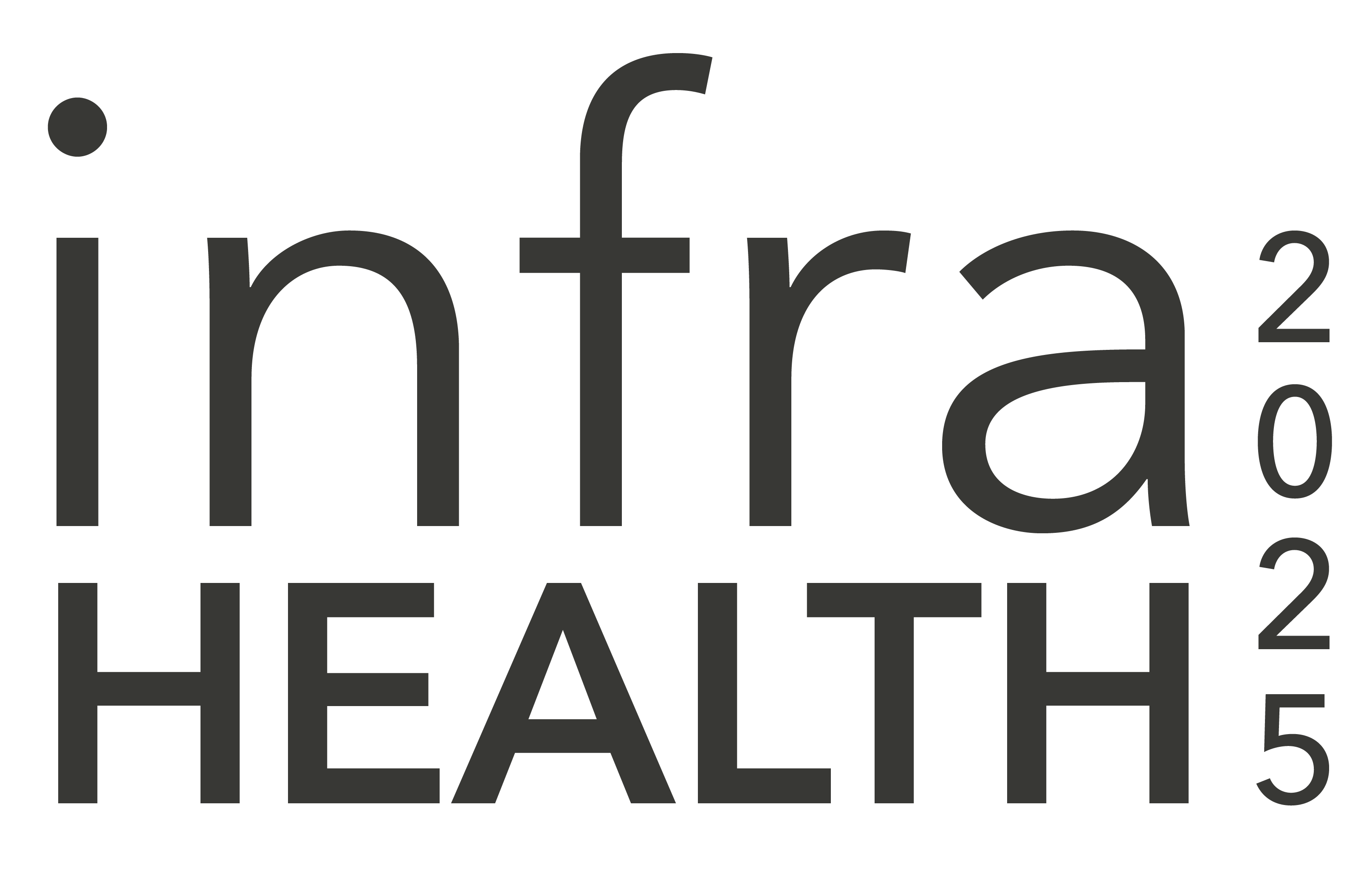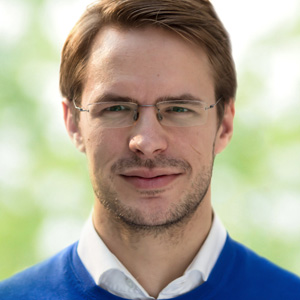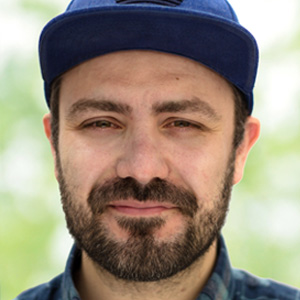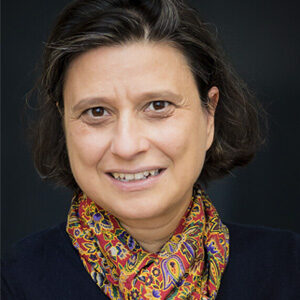Dear Participants of InfraHEALTH 2023,
we want to express our sincere gratitude for your active participation and contributions to this year's conference. Your presence and commitment made this event a resounding success.
The insightful discussions, knowledge sharing, and the spirit of collaboration that permeated the conference were truly inspiring. We couldn't have asked for a better group of participants.
As we bid adieu to InfraHEALTH 2023, we're already eagerly anticipating our next gathering in 2025. We're committed to making it even more informative and enriching for all.
Once again, thank you for being a part of this memorable experience. We look forward to reconnecting with you in 2025 for another exciting edition of InfraHEALTH in Troyes.
Best regards,
David, Konstantin & Xenia


Infrastructures in healthcare play a crucial role in the ongoing transformative processes of digitalization. Emerging technologies such as artificial intelligence (AI), social assistive robotics (SAR), and the Internet of Things (IoT) accelerate transformation. At the same time, the growing availability of patient-oriented health applications contributes to the more active involvement of patients in their care and well-being.
The generation of personal health data is a key outcome and, simultaneously, a drive and a crucial building block of healthcare digitalization. More personal health data are collected in digital form than ever before. Through mobile phones, smartwatches, and other connected devices, patients can self-report health data, monitor their chronic conditions, support their rehabilitation, and engage with personal wellness by following training and activity data.
In healthcare, demographic change with the increase in chronic diseases and co-morbidity, the existing and growing shortage of skilled workers in nursing and medicine, and the advancing digitalization in diagnosis and therapy are pressing issues for which we seek solutions. Against the backdrop of economic constraints (e.g., hospital closures, shortage of doctors, especially in rural areas, billing for services) and the advent of more technical support options (e.g., artificial intelligence in diagnosis, telemedicine), there is a high demand for meaningful digital and socio-technical forms of healthcare support. At the same time, already established digital solutions are evolving (e.g., mobile interfaces for hospital information systems) and are linked to new organizational and process requirements for cross-sector and integrated care chains.
The infraHEALTH conference has a longstanding interest in empirical, conceptual, theoretical, and technical contributions and has a tradition of innovation and inclusiveness.
Authors are invited to submit their work to infraHEALTH 2023 addressing topics that include, but are not limited to:
All submissions will be single-blind and reviewed by at least two reviewers.
Accepted papers will be published in the EUSSET Digital Library.
The conference will take place in Siegen, Germany. The conference will be co-organized by the University of Siegen, the University of Agder, and Clausthal University of Technology. All accepted papers will be published in EUSSET´s Reports of the European Society for Socially Embedded Technologies in the EUSSET digital library (www.eusset.eu).
We look forward to welcoming you to an exciting conference in Siegen!
Konstantin Aal, David Unbehaun & Polyxeni Vassilakopoulou
Conference Chairs
Paper submissions: 8 – 10 pages excluding references
Poster & Demo submissions: 3 – 5 pages excluding references
All accepted papers will be published in EUSSET´s Reports of the European Society for Socially Embedded Technologies, ISSN 2510-2591 in EUSSET digital library (www.eusset.eu).
The registration deadline for paper submissions is passed.
The registration deadline for poster / demo submissions is passed.
All authors have been notified!


Organizing Committee
⠀ ⠀ ⠀ ⠀ ⠀ ⠀ ⠀ ⠀ ⠀ ⠀ ⠀ ⠀ ⠀ ⠀ ⠀ ⠀ ⠀ ⠀ ⠀ ⠀ ⠀ ⠀University of Siegen


Organizing Committee
⠀ ⠀ ⠀ ⠀ ⠀ ⠀ ⠀ ⠀ ⠀ ⠀ ⠀ ⠀ ⠀ ⠀ ⠀ ⠀ ⠀ ⠀ ⠀ ⠀ ⠀ ⠀University of Agder

Universität Siegen - Campus Unteres Schloss (US)
Museum für Gegenwartskunst Siegen
Unteres Schloss 1 - 57072 Siegen
Myriam Lewkowicz
Unlocking Service Provider Models: A Holistic Assessment Methodology for Complex Healthcare Service Infrastructures.
Siddhartha Saxena, Jochen Denzinger and Maurice Riegler
Infrastructural Complexity: A Mapping of Medication Management in Norway
Morten Hertzum and Gunnar Ellingsen
Exploring Infrastructural Inversion in Health Information Infrastructures Design
Åsmund Dæhlen, Suhas Joshi and Miria Grisot
Preparing for Implementing Commercial Algorithms in Radiology; A Formative Evaluation Study.
Line Silsand, Gro-Hilde Severinsen and Mari Serine Kannelønning
Social Robots in Care and Data Privacy - A European Perspective
Felix Carros and Anne Wierling
Mediating Personal Relationships with Robotic Pets for Fostering Human-Human Interaction of Older Adults
Delong Du, Sara Gilda Amirhajlou, Akwasi Gyabaah, Richard Paluch and Claudia Müller
The Narrative Future of (digital) Care – Envisioning Care Fiction(s) in Education-based and professional Care Settings
Sonja Heinemann, Mehrbod Manavi, Sebastian Taugerbeck, Julia Bräuer, Andrea Wolf, Cem Colak, Dorothee Müller, Julia Sauerwald, David Unbehaun and Volker Wulf
Sink Twice – Research through Design to promote sustainable usage of water at your home
Hina Firdaus, Matthias Laschke and Claudia Müller
Establishing a Health Data Marketplace: Insights from Stakeholder Interviews
Kantasit Intaraphasuk, Magnus Erdvik, Ilias Pappas and Polyxeni Vassilakopoulou
AR in medical auscultation training
Susanna Götz and Nicholas Müller
Fears about Social Robots in Nursing
Felix Carros, Sabine Jockisch, Mehrbod Manavi and Volker Wulf
Fostering shared responsibility – A socio-technical system to relieve caring relatives in rural areas
Madeleine Renyi, Kathrin Deisenhofer, Petra Gaugisch, Tobias Wörle, Christophe Kunze and Nathalie Haas
Head-Mounted Display-based Intervention and Education Concepts for Patients Post-Stroke and Relatives in Domestic Care
Charlotte Meixner, Silke Kükemück and David Unbehaun
Enhancing Physical Activity Engagement through Sensor Technology-driven Musical Systems: A Pathway towards an Active Lifestyle for Health Promotion with "BeatSense"
Aydin Coskun, David Unbehaun, Tom Fritz, Patrick Kaiser and Christoph Mall
Robotic-Based Prevention and Health Promotion in Care Facilities – Interactive Design for Group Sessions
Elisabeth Raß and David Unbehaun
Erinnern Sie sich noch? A Storytelling Game with Pepper for Older Adults' Memory Training
Sofía González-Villalobos, Yanwei Miao and Julia Renardias
Embedding Artificial Intelligence into Healthcare Infrastructure for Prostate Cancer Diagnosis
Nazmun Ontika, Sheree Saßmannshausen, Aparecido Fabiano Pinatti De Carvalho and Volkmar Pipek
Designing an infrastructure for sharing of data generated by welfare technologies
Ella Kolkowska, Jenny Lagsten and Annika Andersson
Facilitating Responsible Use of Artificial Intelligence in the Public Sector Through Guidelines for Human- AI Interaction
Jarl Sterkenburg, Mats Ellingsen, Robert Thor Arnarsson, Anh Nguyen Pham, Gard Cappelen, Stefan Hochwarter and Stefan Schmager
A Mixed Reality Approach for Enhanced Understanding and Empathy: Simulating Auditory and Visual Phenomena in Schizophrenia
Eva-Maria Weiß, Emma Schüpfer, Nicholas Müller and Dagmar Unz
A serious game for health prevention campaigns on teenage pregnancy - experiences from Ghana
Sandra Juliet Ahiataku and Johannes Schaedler
Designing a Vital Data Transmission in Rural Areas with Elderly Persons in Nursing Homes and at Home
Nick Brombach, Alexander Keil, Rainer Brück, Olaf Gaus and Thomas Ludwig
DoReMiND - A Robotic Application for Singing with Older Adults
Gloria Yap Basoeki, Nora Hille and Kyra Malinda Dunkel
13 Years of Pioneering in Digital Health: Insights, Lessons Learned and Best Practices
Smartorials – A Smart Glass Infrastructure for Knowledge Transfer in the Health Sector
Jan Christoph Gutzmann, Sebastian Thomas Büttner and Michael Prilla
Designing for Health, Engagement and Social-Interaction: A Multimodal and AR-based Sport System to facilitate digital Connectedness over Distances
David Unbehaun, Michael Ahmadi, Konstantin Aal, Aydin Coskun, Jule Jensen, Volker Wulf, Jan Ellinger, Christoph Mall and Charlotte Meixner
Enhancing Smartwatches through Value-Sensitive Design: Fostering Immediate Usefulness and Value Sensitization
Erlend Ellefsen, Ole Kristoffer Foss and Polyxeni Vassilakopoulou
Augmented Reality enhanced device usage training tool for in-home health-self-monitoring by pregnant women
Sarala Ghimire, Martin Gerdes, Santiago Martinez and Gunnar Hartvigsen
Navigating the Challenges of Remote Research in Times of Crisis and Beyond
Sebastian Taugerbeck, Michael Ahmadi, Marén Schorch, Nino Bohn and Volker Wulf
SpeakOut – A digital platform for orientation and self- help for personal and social problems of students at university
Tanja Aal, Konstantin Aal, Sonia Perunneparampil, Volker Wulf and Claudia Müller
Facilitating Collaboration by Opening the Common Information Space in Mental Health Care
Stefan Hochwarter and Julian Schwarz